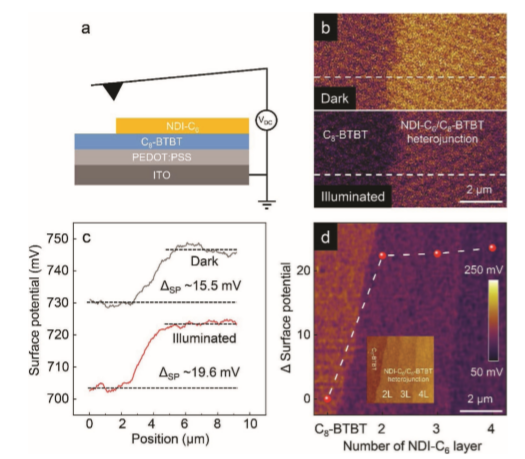Abstract
Organic UV photodetectors using a transistorarchitecture can yield higher photoresponsivity than diode-based devicesbecause of the presence of a gate electrode. However, a long-term issue ofthese phototransistor devices is the slow response speed, which hinders theirpractical applications. Here, organic UV phototransistors are constructed usingfew-layer organic crystalline van der Waals (vdW) heterojunctions as thephotoactive layers. The thickness of the photoactive layers is even less thanthe exciton diffusion length, thus removing the exciton-diffusion bottleneckand giving rise to the confinement of charge separation and recombinationwithin the adjacent molecular layers across the heterojunction interface.Hence, the phototransistor devices can exhibit a remarkably enhanced responsespeed (rise and decay times as short as only ≈4 and 6 ms, respectively).The layer-dependent photoresponse characteristics are also observed,reinforcing the great importance of fewlayer organic heterostructures inphototransistor devices. This work not only provides a promising avenue towardfast response optoelectronic devices but also presents an in-depthunderstanding on the microscopic nature of photogenerated charge carriers atthe precision of molecular layers.
